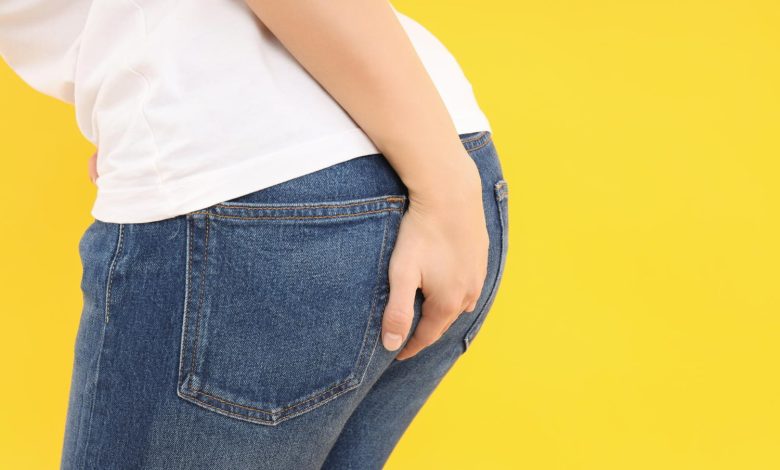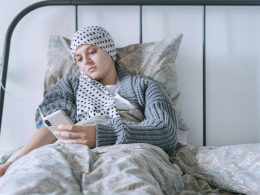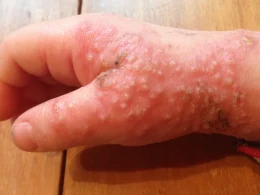For some people, hemorrhoids go away after a few days. In other cases, they can become a regular occurrence.
Hemorrhoids arise from small collections of veins located in the anus and lower rectum. They develop when the veins are swollen or irritated. Some people may need medications or medical procedures to relieve their symptoms and shrink the hemorrhoids. They can cause pain and make simple activities like sitting or walking uncomfortable or difficult. In this article, you will learn more about how long hemorrhoids last, including during pregnancy and after childbirth, and how you can use treatments and home remedies to relieve them. We also look at the timing of the doctor’s visit and the recovery period.
Duration of hemorrhoids
There is no fixed duration for hemorrhoids. Small hemorrhoids can disappear within a few days without treatment. Large external hemorrhoids can take longer to heal and cause significant pain and discomfort. If the hemorrhoids have not gone away within a few days, it is best to see a doctor for treatment.
risk factors
For severe or recurring hemorrhoids, these include:
– Consume too little dietary fiber
– a sedentary lifestyle
– chronic constipation
– Chronic diarrhea
– Straining when having a bowel movement.
Some of the above factors can also make hemorrhoids harder to heal, making the problem last longer.
During pregnancy
Hemorrhoids are a common problem during pregnancy, especially in the third trimester. The extra weight a woman carries during pregnancy can put strain on the veins in the anus and rectum. The growth of the uterus also puts pressure on the veins near the rectum. Hormonal changes can relax the veins in this area, making hemorrhoids more likely. Hormonal and physical changes can also cause gastrointestinal issues like constipation or diarrhea that increase the risk of hemorrhoids.
after birth
The development of hemorrhoids can also occur 1-2 days after birth. Giving birth can increase the risk of hemorrhoids by about 8 times.
A 2022 study reported the occurrence of hemorrhoids in 38% of women after their first pregnancy; this number continues to increase after the other pregnancies.
Causes of hemorrhoids that develop after childbirth include:
– the method of childbirth, in which women with normal and instrumental childbirth have a higher risk of developing hemorrhoids.
– prolonged birth
– prolonged pregnancy and second phase of labour
– an exercise duration of more than 20 minutes
– high weight of newborns
treatment
Treatment for hemorrhoids depends on the type and severity. Most cases of hemorrhoids will heal on their own with simple lifestyle and dietary changes. During this time, the person should be resting and avoiding anything that causes stress or distress to the area. Some mild cases of hemorrhoids require medication and nonsurgical intervention. However, severe cases require surgery when all other treatment options have proven ineffective.
Over-the-counter medicines
Medications for hemorrhoids are available over the counter in the form of:
– ointments
– topical creams
– gels
– suppositories
Prescription drugs
If over-the-counter treatments have little or no effect, a doctor may be able to prescribe more effective ointments. Here are some of the commonly prescribed topical medications:
– Corticosteroids: These can help reduce the inflammation caused by hemorrhoids. However, prolonged use of corticosteroids can damage the skin.
– Lidocaine: Lidocaine acts as a local anesthetic. This combination can help reduce inflammation and promote local blood vessel recovery.
– Phlebotonics: These drugs can improve the general symptoms of hemorrhoids and reduce bleeding.
People who get frequent hemorrhoids or have complications like blood in their stools should see a doctor. The latter may recommend alternative treatments or conduct tests to rule out underlying causes.
Treatments for severe hemorrhoids
People with severe hemorrhoids may need more intensive treatment, including medical procedures. These procedures may include:
– Rubber band ligation: This is the most common non-surgical procedure for removing hemorrhoids. A doctor places a small, tight band around the hemorrhoid to cut off blood flow to the tissue and allow it to fall.
– Sclerotherapy: In this surgery, a doctor injects a chemical drug into the hemorrhoids to shrink them. Doctors may also use heat, light, or freezing temperatures.
– Surgical removal: Doctors only recommend this in cases where hemorrhoids are unresponsive to home or office methods. Surgery is usually effective and prevents hemorrhoids from coming back.
home remedies
Here are some home remedies for hemorrhoids:
– Take fiber supplements
– Sit in a hot water bath, also called a sitz bath
– Apply a cold compress
– Drink enough liquid
– Take pain relievers such as aspirin and ibuprofen.
When to see a doctor
People should see a doctor if they have the following symptoms:
– rectal bleeding
– Dizziness or dizziness
– Change in stool color
– Persistence of symptoms even after a week of home remedies.
Doctors can confirm the diagnosis of hemorrhoids by performing a digital rectal exam and other procedures. Depending on the severity and type of hemorrhoids, he will recommend an appropriate treatment.
Early detection and treatment of hemorrhoids helps prevent the development of severe cases, which are very painful and negatively impact the person’s quality of life.
Restoration
Certain diet and lifestyle changes can help in recovery and prevention for people who have hemorrhoids on a regular basis.
diet
Straining to defecate is a common cause of hemorrhoids, but people can make dietary changes to reduce their need for straining. In general, it is beneficial to include plenty of high-fiber foods in your diet. Plant fibers help retain water in stool, making it softer and easier to pass. They come from:
– fruits
– Vegetables
– Nuts
– Grain
Supplementing the diet with soluble fiber can reduce constipation. Drinking plenty of water throughout the day helps ensure the body is adequately hydrated for healthy digestion, which can also relieve constipation.
lifestyle
A few small lifestyle changes can help minimize hemorrhoid symptoms. Here are a few tips
– Use a small seat to support the legs during defecation to change the position of the anal canal, which can facilitate stool emptying
– Avoid delaying defecation if necessary
– shower regularly
– Gently wash the anus in the shower after each bowel movement, or use wet wipes or water from a bidet
– Take a warm sitz bath to relieve symptoms
– Sit on an ice pack to relieve pain or discomfort
– Exercise regularly to stimulate bowel movements.
Spending too much time on the toilet can allow blood to pool in the veins of the rectum or put unnecessary pressure on them.
summary
Hemorrhoids aren’t usually serious, but they can be annoying and make everyday life difficult. The duration of hemorrhoids can vary from person to person, but there are a variety of over-the-counter and medical options to treat them. There are also simple changes people can make to their diet and lifestyle to relieve symptoms and prevent new hemorrhoids from forming.
* Presse Santé strives to convey health knowledge in a language accessible to all. In NO CASE can the information given replace the advice of a doctor.
Like our content?
Receive our latest publications directly in your mailbox every day free of charge





